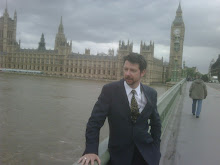Cha do thuig mi sin gus an
deach iarraidh orm pàirt a
ghabhail ann am prògram
Fianais, far am bi Iain
Moireasdan a’ còmhradh
riuthasan a bh‘ ann agus a
chunnaic tachartasan
eachdraidheil.
‘S e an cuspair agamsa an Sual Mòr ann an 2004, an Tsunami Àisianach. Chuir mi seachad cola-deug ag aithris bho theis-meadhan an sgrios a mharbh còrr is cairteal de mhillean.
Mar a b‘ fhaisge a thàinig sinn air clàradh a‘ phrògraim, ‘s ann bu lugha a chuimhnich mi. na rudan èibhinn, bha iad agam, ach cha robh an còrr eile.
‘S ann nuair a lorg mi agus a leugh mi airson a‘ chiad uair na h-aithisgean a chuir mi dhan phàipear-naidheachd agam bho chionn ceithir bliadhna deug, a thàinig a h-uile càil air ais.
Am fàileadh, na seallaidhean, na cuileagan, na làraidhean làn de chuirp. Bha mi air mo ghlasadh a-mach às mo chuimhne airson mo dhìon fhìn.
Tha na thàinig a‘ taomadh a-mach ri fhaicinn air Fianais, Diardaoin-sa tighinn aig 8.30f air BBC Alba.
‘S e an cuspair agamsa an Sual Mòr ann an 2004, an Tsunami Àisianach. Chuir mi seachad cola-deug ag aithris bho theis-meadhan an sgrios a mharbh còrr is cairteal de mhillean.
Mar a b‘ fhaisge a thàinig sinn air clàradh a‘ phrògraim, ‘s ann bu lugha a chuimhnich mi. na rudan èibhinn, bha iad agam, ach cha robh an còrr eile.
‘S ann nuair a lorg mi agus a leugh mi airson a‘ chiad uair na h-aithisgean a chuir mi dhan phàipear-naidheachd agam bho chionn ceithir bliadhna deug, a thàinig a h-uile càil air ais.
Am fàileadh, na seallaidhean, na cuileagan, na làraidhean làn de chuirp. Bha mi air mo ghlasadh a-mach às mo chuimhne airson mo dhìon fhìn.
Tha na thàinig a‘ taomadh a-mach ri fhaicinn air Fianais, Diardaoin-sa tighinn aig 8.30f air BBC Alba.
Translation
“Tell us about the war”, we used to ask as children and we’d get amusing reports about harbours on the other side of the world and strange sailors. There was nothing about actual war
I didn’t understand why until I was asked to take part in the programme Fianais (Witness), in which John Morrison talks to those who have been and seen historic events.
My subject was the Great Wave of 2004, the Asian Tsunami.
I spent a fortnight reporting from the epicentre of the disaster which killed over a quarter of a million people.
The closer it came to recording the programme, the less I remembered.
The funny things I could recall, but not the rest of it.
It was when I found and read for the first time the reports I had sent to my stories newspaper 14 years ago that everything came back.
The smells, the sights, the insects, the lorries full of bodies.
I had been locked out of my memory for my own protection.
What came tumbling out can be seen on Fianais, next Thursday at 8.30pm on BBC Alba.





